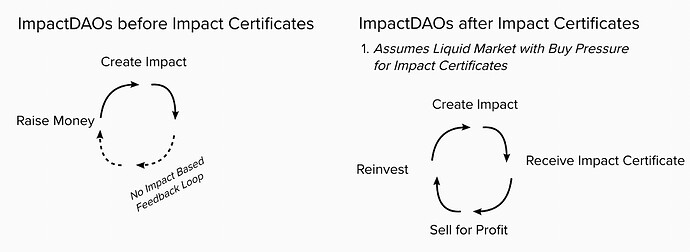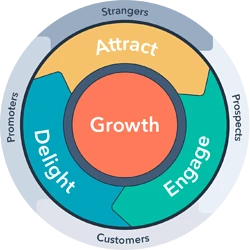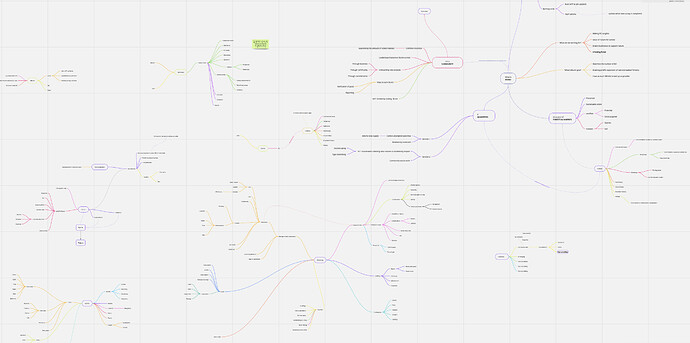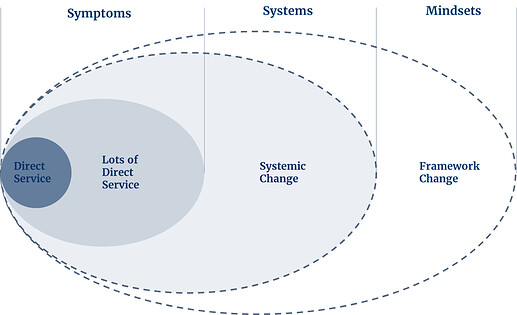Hi everyone, my name is Ahmed Lelamo, I work with Ethelo doing public digital decision-making engagements. I’ve taken the lead in our impact measurement efforts as we try to understand what kind of impact our technology is having on decision-makers. We’ve recently started a conversation with Ashoka (a global network of social entrepreneurs) practitioners who are very excited about the prospects of impact work in web3.
About us:
Ethelo
Ethelo provides best-in-class engagement technology, coupled with expert services that make big decisions easy. We combine fairness and collective intelligence to unlock the answers to hard, contentious problems.
Ethelo has worked with approximately 100k participants across 400 major decisions. More than 150 customers have used our platform including local governments, businesses, nonprofits, health agencies, universities, indigenous communities, housing associations, foundations, and the Canadian government.
Ashoka
Ashoka identifies and supports the world’s leading social entrepreneurs, learns from the patterns in their innovations, and mobilizes a global community that embraces these new frameworks to build an “everyone a changemaker world.”
The Ashoka Fellow Network consists of a global network of 3,000 Fellows in over 72 countries. Ashoka’s process for qualifying fellows, and the strict criteria that are applied, have made its community synonymous with highly impactful, innovative strategies for social and environmental impact.
Overview
The process of creating impact certificates needs to be credibly neutral, transparent and inclusive.
In collaboration with Ashoka, Ethelo will provide the consensus-building processes and technology and a wealth of expertise in impact assessment (through Ashoka’s practitioners) needed for a governance body to:
-
Collectively create an Impact Assessment Framework (IAF) that can align stakeholders around foundational impact assessment features such as methodology, criteria and metrics.
-
Ashoka impact specialists, along with interested community members, use the Ethelo platform to apply the Impact Assessment Framework and collectively assign Impact Certifications (unique NFTs) to qualifying projects.
Collectively create an Impact Assessment Framework
What does “Impact” mean in the first place? How do we measure it? What are the criteria for Impact? Should some metrics or criteria be weighted differently? Should there be several Impact Categories with unique impact metrics?
These are questions that should be answered by a broader set of stakeholders, not just the third-party organization tasked with adjudicating impact certification. Ethelo can provide the platform to engage a large number of stakeholders, including the impact makers themselves to build consensus around the most broadly supported Impact Assessment Framework. Ideally, we would invite all DAOs identified to be Impact DAOs and ask them to participate in the process of collectively shaping the Impact Assessment Framework.
This engagement process can be a multi-stage process starting with Ideation where participants brainstorm on broad ideas about what “impact” means and culminating with a Prioritization stage where the details of the Impact Assessment Framework are voted on and the most broadly supported framework is selected.
Involving the community of Impact DAOs from the beginning will go a long way to legitimize the Impact Assessment Framework and the certificates that result from it.
The key to a successful engagement process culminating in a broadly supported Impact Assessment Framework is making sure that the questions posed during the Ideation process are open-ended enough to receive a wide variety of responses but also the process needs to be structured enough to facilitate the following Prioritization phase. To make sure these engagement goals are achieved, the Ethelo team can provide a wealth of experience configuring public engagement processes, while Ashoka practitioners can provide knowledge and insight about alternative impact assessment methodologies which can be used as content-prompts for participants to respond meaningfully.
Ashoka’s impact framework
Over the last 40 years, Ashoka has perfected its expertise in identifying and supporting social entrepreneurs with system changing ideas. We have learned to distinguish between four levels of impact: direct service, scaled direct service, system change and framework change and engage only with the last two.
The vast majority of social impact initiatives tend to concentrate on addressing the symptoms of a problem by providing direct services to those it serves (i.e. a soup kitchen, planting trees). While these approaches will always be needed, alone they will never address the root causes at play. Systems change, meanwhile, changes the pattern of behavior in a given system (i.e. introducing “zero deforestation” policies; turning fishermen into algae farmers).
The highest level of impact is one where social entrepreneurs manage to change the mindsets that drive behavior (i.e. the civil rights movement; decentralization). By changing the way people see and understand the world, they create demand for new behaviors at all levels.
Ashoka has developed a number of measures to track and evaluate systems change and framework change, which we’d love to adjust for Gitcoin’s Impact Assessment Framework.
Collectively assign Impact Certifications
Once the Impact Assessment Framework has been democratically created, along with all the impact sectors, criteria, metrics and whatever else the framework includes, it can be democratically implemented resulting in the assignment of Impact Certificates (in the form of unique NFTs)
Impact makers will be asked to provide their claim of impact in detail, specific to the impact sector they are involved in. This information will be uploaded on the Ethelo platform for the governance body to review using a multi-criteria Impact Assessment Framework, resulting in a final Impact Score per individual impact claim. Here is a demo of a multi-criteria Ethelo Granting instance that could be repurposed for an Impact Evaluation process: https://granting.ethelo.net/
Reviewers involved in the governance/impact-verification process can be several different groups of stakeholders with different levels of influence over the Impact Score. Ethelo supports several levels of authentication that can allow different stakeholders to influence the final Impact Score differently. We could have several tiers of potential reviewers:
- Independent Judges (provided by Ashoka)
- Gitcoin Stewards
- Gitcoin DAO members
- General DAO Community
Allowing a larger number of stakeholders in the review process ensures that the process is transparent and inclusive.
The results of this collective assessment exercise will determine whether a particular project will receive an impact certificate. Again, all the details about the impact framework will be decided in the earlier engagement phase.



